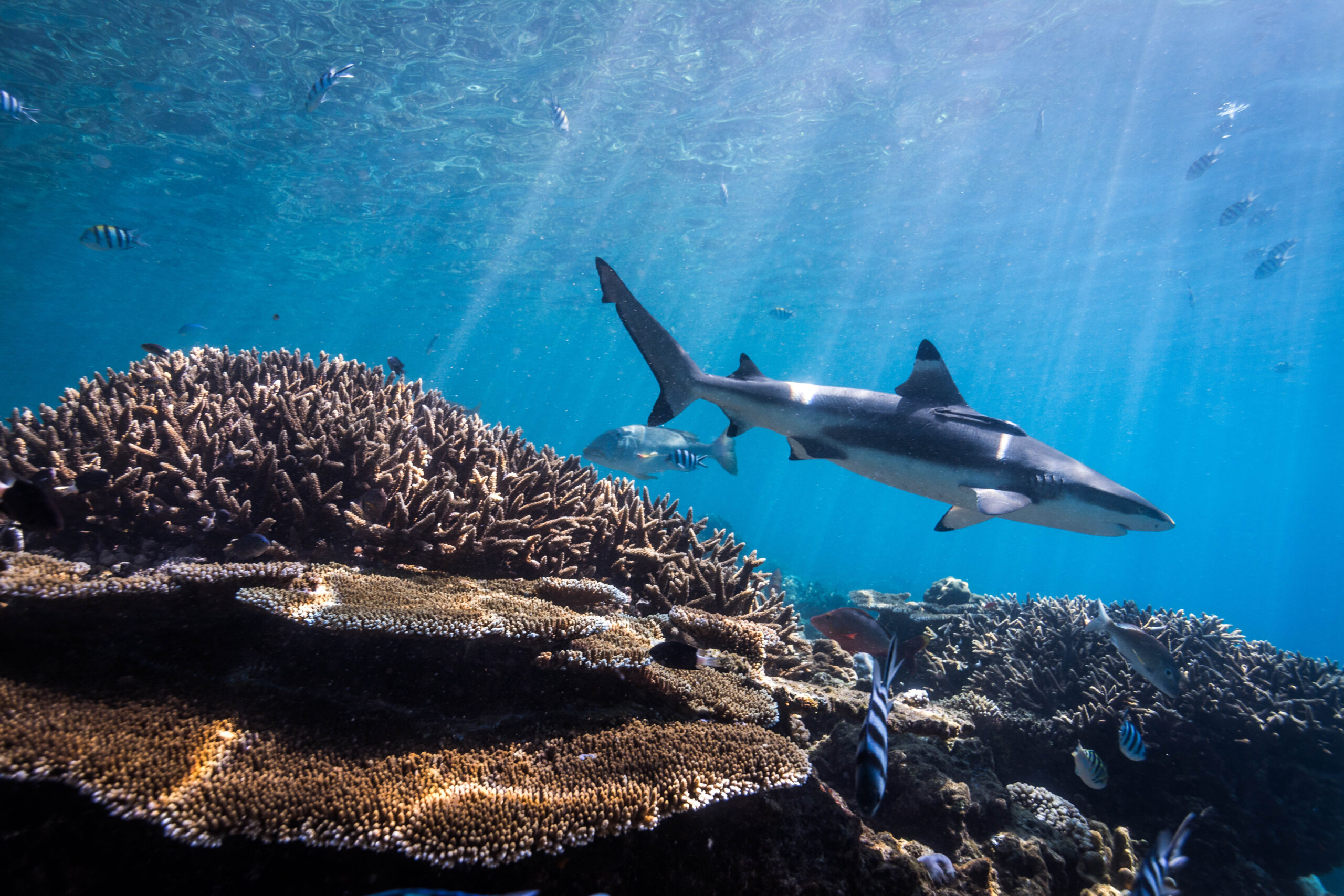Abstract: Climate change and other anthropogenic disturbances have created an era characterized by the inability of most ecosystems to maintain their original, pristine states, the Anthropocene. Investigating new and innovative strategies that may facilitate ecosystem restoration is thus becoming increasingly important, particularly for coral reefs around the globe which are deteriorating at an alarming rate. The Great Barrier Reef (GBR) lost half its coral cover between 1985 and 2012, and experienced back-to-back heat-induced mass bleaching events and high coral mortality in 2016 and 2017. Here we investigate the efficacy of interspecific hybridization as a tool to develop coral stock with enhanced climate resilience. We crossed two Acropora species pairs from the GBR and examined several phenotypic traits over 28 weeks of exposure to ambient and elevated temperature and pCO2. While elevated temperature and pCO2 conditions negatively affected size and survival of both purebreds and hybrids, higher survival and larger recruit size were observed in some of the hybrid offspring groups under both ambient and elevated conditions. Further, interspecific hybrids had high fertilization rates, normal embryonic development, and similar Symbiodinium uptake and photochemical efficiency as purebred offspring. While the fitness of these hybrids in the field and their reproductive and backcrossing potential remain to be investigated, current findings provide proof-of-concept that interspecific hybridization may produce genotypes with enhanced climate resilience, and has the potential to increase the success of coral reef restoration initiatives.
Authors: Chan, W.Y., L.M. Peplow, P. Menéndez, A.A. Hoffmann, and M.J.H. van Oppen
Year: 2018
View Full Article
Frontiers in Marine Science 5: doi.org/10.3389/fmars.2018.00160


